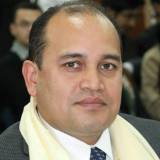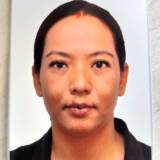Introduction to School of Business
The School of Business was established in 1999 under the Faculty of Management Studies (FMS) as a constituent college. Initially, it was named Pokhara University Campus which changed to Management Campus and recently the name has changed as School of Business. Its ongoing vision is to develop a premier business college in order to prepare the youth of today in creative and productive ways for the growing challenges of the business world, both locally and internationally.
School of Business is dedicated to develop as a centre of excellence for higher education by excelling teaching, learning and research activities; to produce market oriented and service oriented committed human resources with a concern to link the university system with the community services. School of Business, a truly management college, centrally located in Lekhnath Municipality at Dhungepatan, has been consistent in its approach to assist management students to shape habits, skills, interest, psychology not only nurturing their managerial excellence but also ensuring and inspiring them for existential life being a part of society. The school has been solely convinced with a destination of fostering and foregrounding the academics of present education system flavouring new ideas and strategies to meet pace with the fast changing pattern and cope with the global challenges and needs.
The School has been administering the undergraduate (Bachelor of Business Administration – BBA and Bachelor of Business Administration in Banking and Insurance- BBA-BI) and graduate (Master of Business Administration-MBA Full time and Part time) programs in Management Studies. The School offers a strong focus on the “real” world of employment, underpinned by an international research capability based on academic excellence and practical business relevance. Our range of highly-regarded business and management courses combines a thorough grounding in management theory and practice with the opportunity to specialize in finance, accounting, human resource management, international business and marketing.
Moreover the School provides functional academic environment to motivate and sharpen creativity and interactive ability. The school agrees that knowledge is an indispensable part of education and aims to attend to the development of character and personality by means of their social life, game, music, drama, visual aids and enormous range of other things of out of class activities, all of which students consider part of their program. The school’s philosophy is to provide quality education that is sound in concept, implemented by competent and dedicated faculty, and geared to serve those seeking a solid foundation in knowledge and skills required to obtain employment in their chosen fields. The programs offered emphasize hand-on training’s that are relevant to employers and focus on areas that offer strong, long term employment opportunities. The school shall remain engaged in the process of preparing its students to fit into this complex social structure, and to play particular social roles as members of more than one institutional group. It is highly concerned with the preparation of the students for their future occupations and careers.
Salient Features of the School
- Competent, experienced and full time faculties having national and international exposures.
- A large pool of guest lecturers and speakers comprising the scholars from different universities, professionals from corporate sector and experienced entrepreneurs.
- Offers quality education on affordable fee structure.
- Scholarships to 20 percent deserving students.
- Counselling facilities to students during the entire office hours.
- Modern pedagogical approach like Interactive lectures, Case Studies, Group Discussion, Project Assignment, Field Visits, Class Presentation, Seminar etc.
- Project Work and Internship are the integral part of the curriculum. Students have a seminal opportunity to learn and research practically.
- Audio visual resource materials
- Library with wide range of text and reference books, dissertation, e-resources and internet facilities.
- Various Extra-curricular Activities and Educational Excursions for the exposure of the students in different dimensions.
- Peaceful and serene learning environment.
- Spacious place for sports and entertainment.
Programs offered at School of Business
Master in Business Administration (MBA) Program
MBA curriculum has been designed on a modular format to be implemented over six trimesters. SOB has run two programs in Master level: MBA (regular) and MBA (jobholder). Anyone can join to MBA (regular) program but
MBA (jobholder) program is designed for those students who have work experience and engaged in job and would like to pursue formal MBA degree. The program is recognized by the internationally reputed universities across the globe. The MBA program consist of 27 courses with total 66 credit hours comprising foundation courses, analytical tool courses, core and functional area courses, integrative courses, concentration and elective courses. The program also includes two thematic graduate seminars and three workshops. Students also undertake Internship Project during the fifth trimester. Graduates from all disciplines are eligible to join the program.
Curricular Structure
The MBA students are required to complete 27 courses, and four practicum and graduate seminars (equivalent to 66 credit hours). Students are required to complete 7 foundation and analytical tool courses (18 credits), 10 core and functional courses (20 credits), 2 capstone courses (6 credits), 4 concentration courses (8 credits), 2 electives (4 credits), and graduate research project, internship, seminars, and other projects (10 credits). There are total six trimesters and each trimester covers four months.
BBA Program
The Bachelor of Business Administration (BBA) program of Pokhara University aims to provide students with foundational knowledge and practical skills in various areas of business administration. It also intends to develop intellectual ability and managerial skills in students through business and other social science courses. Besides, the program helps the students to develop proper attitudes and qualities required for managing business functions.
The program specifically aims to produce the graduates who:
- have a sound knowledge and proper conceptual underpinnings of business management,
- are well acquainted with the broad contexts of business organizations in Nepal and outside,
- possess analytical, problem-solving, and communication skills,
- possess the ability to use electronic media and computers to solve organizational problems,
- have the ability to work in teams and individually, and
- have awareness of the environmental factors, social/functional relationships, and ethical standards that affect business and administrative decisions within an organization.
Curricular Structure
The curriculum is designed to equip students with the competencies, knowledge, skills, and attitudes needed for success in management field. The coursework gives students a broad and holistic view of the challenges in today’s business environment. The BBA program provides students basis for career growth and prepares them for higher studies. The curriculum comprises the following five distinct components:
- Foundation Courses: These courses develop students’ communication skills and provide them with strong foundation in economics, behavioral science, statistics, mathematics, information technology, and legal environment of business.
- Core Courses: These courses will help students to understand principles and practices in the basic and functional areas of management and develop their ability to synthesize and appreciate the interrelationships among these areas of management.
- Concentration Courses: The concentration courses will help students to develop specialized and focused skills in the areas of their choice. Students are required to select four courses from any one of the concentration areas offered by the University.
- Elective Courses: The elective courses are non-business courses, based on social sciences. A student may select any two of the listed elective courses. These courses take place as other regular courses, and are graded in the same way.
- Project Work and Internship: Students need to take an independent capstone project that carries the weight of 3 credit hours. The project involves fieldwork and its empirical analysis. Students must follow the prescribed formats to prepare such reports. Besides this, students also need to do internships in business organizations for six to eight weeks. Aimed to provide an opportunity to gain real-life experience, this course also helps the students to apply theoretical understanding to action. The internship carries the weight of 3 credit hours.
Program Features
The BBA is a four-year program structured in eight semesters. A student needs to complete 120 credit hours of course work, project work and internship for graduation. Besides lectures, the classes are facilitated by case studies, group discussions, project assignments, field visits, class presentations and other teaching methods. In order to develop communication and interpersonal skills, students are emphasized to participate in class activities, group discussions and individual presentations. The medium of instruction and examination for this program will be English, and a student is expected to have good English language proficiency with acceptable communication skills.
The Semester System
The prominent feature of the semester system is the continuous evaluation of a student’s performance, and flexibility given to the students to progress at pace suited to his/her individual ability as per the credit requirements. The credit hour assigned to each course of this program varies depending on its lecture, tutorial and practical work hours in a week. One lecture/contact hour per week per semester is assigned one credit. That is, a three credit hours course has 48 class hours. A faculty member is assigned to teach each of the courses. If the course is taught by more than one faculty member, then one of the members is designated as the coordinator of that course.
Concentration Area
The concentration courses will help students to develop specialized and focused skills in the areas of their choice. Students are required to select four courses from any one of the concentration areas. Each course bears 3 credit hours.
Elective Course
The elective courses are non-business courses, based on social sciences. A student may select any two of the listed elective courses. Each course carries 3 credit hours.
Bachelor of Business Administration in Banking & Insurance (BBA–BI)
Program Objectives:
The Bachelor of Business Administration in Banking and Insurance (BBA–BI) program of Pokhara University provides students with sound conceptual foundation and practical skills in various areas of banking, finance and insurance. This program aims to produce graduates who:
- have a sound knowledge base and proper conceptual underpinnings of business management, banking, finance and insurance,
- are well acquainted with the broad contexts of business organizations in Nepal and outside,
- possess analytical and problem-solving skills,
- have the ability to work in teams and individually, and
- are competent in written and oral communication, including the ability to use electronic media and computers for business communication.
Curricular Structure
The curriculum comprises the following five distinct components:
- Foundation Courses: These courses develop students’ communication skill and provide them with strong foundation in economics, behavioral science, statistics, mathematics, information technology, and legal environment of business.
- Management Core Courses: These courses will help students to understand the basic principles and practices in the functional areas of management.
- Banking and Insurance Core Courses: These courses will help students to understand principles and practices in the basic and functional areas of banking and insurance.
- Elective Courses: These courses will help students to develop specialized and focused skills in the areas of their choice.
- Project Work and Internship: Students need to take an independent capstone project that carries the weight of 3 credit hours. The project involves fieldwork and its empirical analysis. Students must follow the prescribed formats to prepare such reports. Besides this, a student also needs to do an internship in a business organization for six to eight weeks. Aimed to provide an opportunity to gain real-life experience, this course also helps the students to apply theoretical understanding to action. The internship carries the weight of 3 credit hours.
Program Features
The BBA–BI is a four-year program structured in eight semesters. A student needs to complete 120 credit hours of course work, project work and internship for graduation. Besides lectures, the classes are facilitated by case studies, group discussions, project assignments, field visits, class presentations and other teaching methods. In order to develop communication and interpersonal skills, students are emphasized to participate in class activities, group discussions and individual presentations. The medium of instruction and examination for this program will be English, and a student is expected to have good English language proficiency with acceptable communication skill.
The Semester System
The prominent feature of the semester system is the continuous evaluation of a student’s performance, and flexibility given to the students to progress at pace suited to his/her individual ability as per the credit requirements. The credit hour assigned to each course of this program varies depending on its lecture, tutorial and practical work hours in a week. One lecture/contact hour per week per semester is assigned one credit. That is, a three credit hours course has 48 class hours. A faculty member is assigned to teach each of the courses. If the course is taught by more than one faculty member, then one of the members is designated as the coordinator of that course.
Electives Course
BBA-BI has no separate specialisation course. Out of nine elective courses, students will select any two courses comprises of 6 credit hours.
Pokhara Metropolitan City-30, Khudi, Dhungepatan, Kaski, Nepal
Telephone: +977-61-504147, +977-61-504035
Email: [email protected]
Greetings from School of Business
 It gives me immense pleasure to welcome you all at School of Business. School of Business is a premier academic institution offering variety of undergraduate and graduate programs such as BBA, BBA-BI and MBA. It ensures world class education that transforms students into independent, cooperative, competent and socially responsible citizens who value education as a lifelong process. The school is more committed to promote value system conducive to the pursuit of excellence, as well as concern for social equity. The school is involved in promoting creativity, innovation and enterprise and gradually emerging as one of the major players in providing quality management education in the country.
It gives me immense pleasure to welcome you all at School of Business. School of Business is a premier academic institution offering variety of undergraduate and graduate programs such as BBA, BBA-BI and MBA. It ensures world class education that transforms students into independent, cooperative, competent and socially responsible citizens who value education as a lifelong process. The school is more committed to promote value system conducive to the pursuit of excellence, as well as concern for social equity. The school is involved in promoting creativity, innovation and enterprise and gradually emerging as one of the major players in providing quality management education in the country.
The years that has gone by will be remembered for the many milestones that we, as a constituent college of Pokhara University, have achieved – some tangible and some intangible yet invaluable. Seeing new cohorts of young minds coming to the university from all parts of the country with hope in their eyes while another set of young minds passes out, equipped with a unique degree of confidence to face the world out there, can bring about a great sense of accomplishment.
We still continue to face some teething problems in many aspects of the University. But then establishing the first university of its kind in western region of Nepal can never be without challenges. The baby steps we have been taking, however, have given way to more confident strides and we are marching ahead with a renewed determination, spurred by an inspirational form of co-operation.
School of Business is more than just a place where you come to study for your degree. It is a community of students and faculty from diverse backgrounds coming together with a common belief that learning is a lifelong process. On one hand, you will always find yourself being pushed to take responsibility of your own learning while on the other hand you will be encouraged to question, challenge and critically reflect both in and outside the classroom.
Through our academic programs you will have many opportunities to learn about the wider world, while you continue to develop the expertise in the area of your own interest. You will be offered community service opportunities to develop understanding of the contemporary social issues both at global and local level.
I look forward to working together with you as we strive to raise the benchmark of higher education in Nepal.
Rabindra Ghimire, PhD
Director
School of Business
MBA
Entry Requirement
The entry requirement for a new student in both MBA programs (regular and jobholder) will be minimum of 15 years formal education (12 years of schooling plus three years of graduation) in any discipline like Management, Humanities, Social Science, and Education from recognized university by Pokhara University with minimum second division (45%) or not less than CGPA 2.0 out of 4.0 scale. Besides the basic academic requirements, the entrance examination will be held. The admission for MBA (regular) program is taken twice a year in every March and August session while MBA (jobholder) program is taken once a year in August session. (Furthermore, the applicant must have secured a minimum CGPA of 2.0 or 45 percent in Bachelor’s level. The final decision on admission is taken on the basis of scores on the admission test, group discussions and interviews.
Required Documents for Admission
The applicant requires to submit following documents with the duly completed and signed application form:
- Two passport size photographs
- Officially attested copies of certificates and transcripts/mark-sheet of all academic qualifications
- migration certificate of highest degree
- Application fee Rs. 1,000.
Selection Procedure
The selection procedure is based on written examination, group discussion, personal interview along with the marks obtained in SLC, Higher Secondary, and Bachelors level. Enrolment is conditional upon completion of all admission formalities, furnishing required documents and payments of fees. Incomplete documents will not be processed.
If the student in the merit list is unable to apply for admission within given period, the admission shall automatically be cancelled and the opportunity will be given to the alternative candidate.
BBA
Entry Requirements and Admission Procedures Eligibility
The entry requirement for a new student in BBA will be Intermediate or Higher Secondary level (10+2) or Proficiency Certificate Level (PCL), or equivalent as recognized by Pokhara University. In addition, the student must pass the entrance test conducted by the concerned college.
Documents Required: The applicant is required to submit the following documents with the application form made available by the concerned college/school by paying a predetermined fee:
- Completed and signed BBA application form
- Official transcripts from the academic institutions previously attended. Certificates of all degrees should be photocopied and submitted with proper attestation. Enrolment is conditional upon completion of all admission formalities including payment of all fees as determined by the college. Incomplete applications shall not be processed.
Admission Procedures
A notice inviting applications for admission is publicly announced. Application forms and information brochures are provided, on request, after the payment of the prescribed fee. The concerned college scrutinizes the application. The eligible candidates are informed to take the entrance test. The date and time for the entrance test are informed to the applicants by the concerned colleges. The college may also interview the candidates for the final selection for admission. The candidates who are given provisional admission under special conditions are required to submit all necessary documents within a month after their regular classes begin. A student who fails to do so will have his/her admission cancelled.
Curricular Structure of BBA program
The curriculum has been designed to equip the students with the competencies, knowledge, skills, and attitudes needed for success in management field. The BBA is a four-year program structured in eight semesters. A student needs to complete 120 credit hours of course work, project work and internship for graduation. The curriculum comprises the following five distinct components: Foundation Courses – 39 credits, Core Courses – 57 credit, Concentration Courses-12 credit, Elective Courses -6 credit, Project Work and Internship-6 credit.
BBA-BI
Entry Requirements and Admission Procedures Eligibility
The entry requirement for a new student in BBA-BI will be Intermediate or Higher Secondary level (10+2) or Proficiency Certificate Level (PCL), or equivalent as recognized by Pokhara University. In addition, the student must pass the entrance test conducted by the concerned college.
Documents Required
The applicant is required to submit the following documents with the application form made available by the concerned college/school by paying a predetermined fee:
- Completed and signed BBA-BI application form
- Official transcripts from the academic institutions previously attended. Certificates of all degrees should be photocopied and submitted with proper attestation. Enrolment is conditional upon completion of all admission formalities including payment of all fees as determined by the college. Incomplete applications shall not be processed.
Admission Procedures
A notice inviting applications for admission is publicly announced. Application forms and information brochures are provided, on request, after the payment of the prescribed fee. The concerned college scrutinizes the application. The eligible candidates are informed to take the entrance test. The date and time for the entrance test are informed to the applicants by the concerned colleges. The college may also interview the candidates for the final selection for admission. The candidates who are given provisional admission under special conditions are required to submit all necessary documents within a month after their regular classes begin. A student who fails to do so will have his/her admission cancelled.
-
 Hari Bahadur Khadka Professor Cell: Email:
Hari Bahadur Khadka Professor Cell: Email: -
 Deepak Bahadur Bhandari, PhD Associate Professor Cell: Email:
Deepak Bahadur Bhandari, PhD Associate Professor Cell: Email: -
 Gyaneswor Sharma, PhD Associate Professor Cell: Email:
Gyaneswor Sharma, PhD Associate Professor Cell: Email: -
 Deepak Raj Paudel Associate Professor Cell: Email:
Deepak Raj Paudel Associate Professor Cell: Email: -
 Balaram Bhattarai Associate Professor Cell: Email:
Balaram Bhattarai Associate Professor Cell: Email: -
 Daya Raj Dhakal Associate Professor Cell: Email:
Daya Raj Dhakal Associate Professor Cell: Email: -
 Umesh Shingh Yadav, PhD Associate Professor Cell: Email:
Umesh Shingh Yadav, PhD Associate Professor Cell: Email: -
 Surya Bahadur G.C., PhD Associate Professor Cell: Email:
Surya Bahadur G.C., PhD Associate Professor Cell: Email: -
 Rabindra Ghimire, PhD Associate Professor Cell: Email:
Rabindra Ghimire, PhD Associate Professor Cell: Email: -
 Bharat Ram Dhungana, PhD Associate Professor Cell: Email:
Bharat Ram Dhungana, PhD Associate Professor Cell: Email: -
 Bishow Nath Lamichhane Lecturer Cell: Email:
Bishow Nath Lamichhane Lecturer Cell: Email: -
 Srijan Gyawali Lecturer Cell: Email:
Srijan Gyawali Lecturer Cell: Email: -
 Nirajan Bam Lecturer Cell: Email:
Nirajan Bam Lecturer Cell: Email: -
 Purna Bahadur Khanda Lecturer Cell: Email:
Purna Bahadur Khanda Lecturer Cell: Email: -
 Deep Mala Shrestha Gurung Lecturer Cell: Email:
Deep Mala Shrestha Gurung Lecturer Cell: Email: -
 Deepanjal Shrestha Lecturer Cell: Email:
Deepanjal Shrestha Lecturer Cell: Email: -
 Bishwo Raj Parajuli Lecturer Cell: Email:
Bishwo Raj Parajuli Lecturer Cell: Email: -
 Santosh Kumar Gurung Lecturer Cell: Email:
Santosh Kumar Gurung Lecturer Cell: Email: -
 Yog Raj Lamichhane Lecturer Cell: Email:
Yog Raj Lamichhane Lecturer Cell: Email: -
 Bibek Karmacharya Lecturer Cell: Email:
Bibek Karmacharya Lecturer Cell: Email: -
 Deepak Neupane Lecturer Cell: Email:
Deepak Neupane Lecturer Cell: Email: -
 Durga Prasad Chapagani Lecturer Cell: Email:
Durga Prasad Chapagani Lecturer Cell: Email: -
 Shanti Devi Chhetri Lecturer Cell: Email:
Shanti Devi Chhetri Lecturer Cell: Email: -

-
 Pradeep Sapkota Lecturer Cell: Email:
Pradeep Sapkota Lecturer Cell: Email: -
 Kripa Kunwar Lecturer Cell: Email:
Kripa Kunwar Lecturer Cell: Email: -
 Ram Krishna Chapagani Lecturer Cell: Email:
Ram Krishna Chapagani Lecturer Cell: Email: -
 Ghanshyam Tiwari Lecturer Cell: Email:
Ghanshyam Tiwari Lecturer Cell: Email: -
 Dipak Ojha Lecturer Cell: Email:
Dipak Ojha Lecturer Cell: Email: -
 Hema Kanta Paudel Lecturer Cell: Email:
Hema Kanta Paudel Lecturer Cell: Email: -
 Rabindra Prasad Baral Lecturer Cell: Email:
Rabindra Prasad Baral Lecturer Cell: Email: -
 Subarna Bir Janga Bahadur Rana Lecturer Cell: Email:
Subarna Bir Janga Bahadur Rana Lecturer Cell: Email: -
 Sujeeta Adhikari Lecturer Cell: Email:
Sujeeta Adhikari Lecturer Cell: Email: -

-
 Balchandra Paudel Lecturer Cell: Email:
Balchandra Paudel Lecturer Cell: Email: -
 Bharat Raj Wagle Lecturer Cell: Email:
Bharat Raj Wagle Lecturer Cell: Email:
-
 Sita Devi Dhakal Deputy Administrator (Account) Cell: Email:
Sita Devi Dhakal Deputy Administrator (Account) Cell: Email: -
 Tilak B.K. Assistant Administrator (Administration) Cell: Email:
Tilak B.K. Assistant Administrator (Administration) Cell: Email: -
 Pramod Giri Assistant Administrator (Administration) Cell: Email:
Pramod Giri Assistant Administrator (Administration) Cell: Email: -
 Debaki Dahal Head Assistant (Administration) Cell: Email:
Debaki Dahal Head Assistant (Administration) Cell: Email: -
 Sunil Devakota Head Assistant (Administration) Cell: Email:
Sunil Devakota Head Assistant (Administration) Cell: Email: -
 Bandana Godar Thapa Head Assistant (Administration) Cell: Email:
Bandana Godar Thapa Head Assistant (Administration) Cell: Email: -
 Laxman Banstola Assistant Cell: Email:
Laxman Banstola Assistant Cell: Email: -
 Toran Bahadur B.K. Assistant Cell: Email:
Toran Bahadur B.K. Assistant Cell: Email: -
 Bimala Baral Assistant Cell: Email:
Bimala Baral Assistant Cell: Email: -
 Surendra Man Bajracharya Driver Cell: Email:
Surendra Man Bajracharya Driver Cell: Email: -
 Dhan Bahadur Gurung Driver Cell: Email:
Dhan Bahadur Gurung Driver Cell: Email: -
 Nirmala Sarki Office Helper Cell: Email:
Nirmala Sarki Office Helper Cell: Email: -
 Ananda Kumar Paudel Office Helper Cell: Email:
Ananda Kumar Paudel Office Helper Cell: Email: -
 Jogiram Sarki Sweeper Cell: Email:
Jogiram Sarki Sweeper Cell: Email: -
 Santa Devi Tiwari Sweeper Cell: Email:
Santa Devi Tiwari Sweeper Cell: Email: